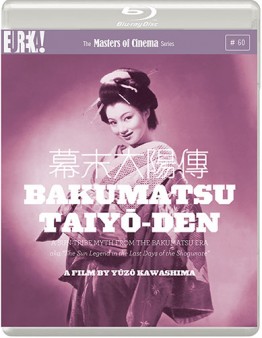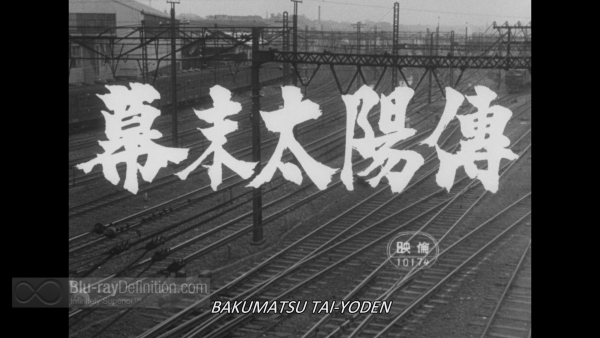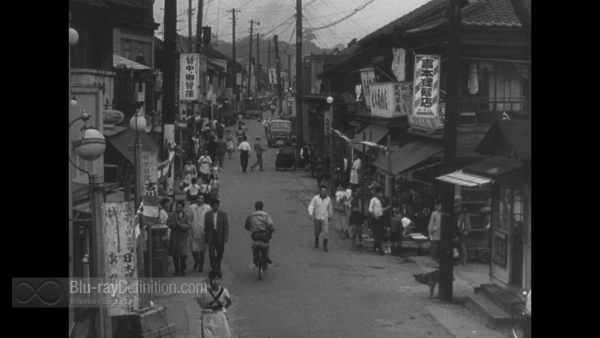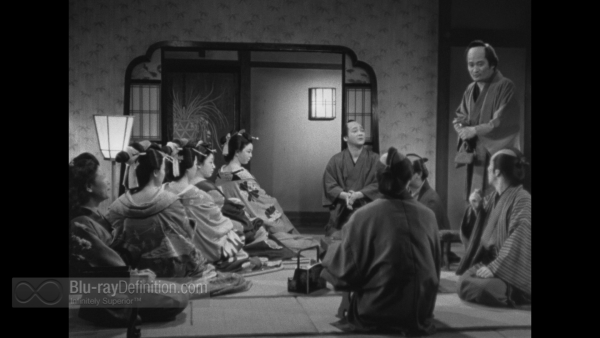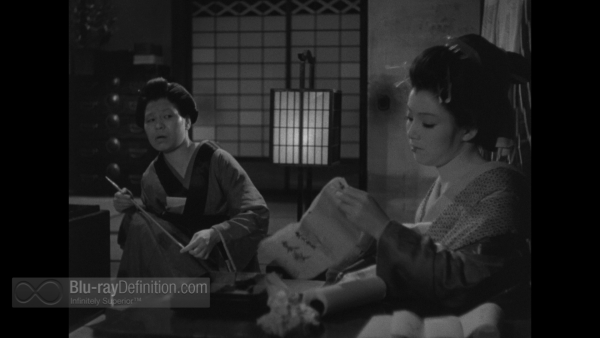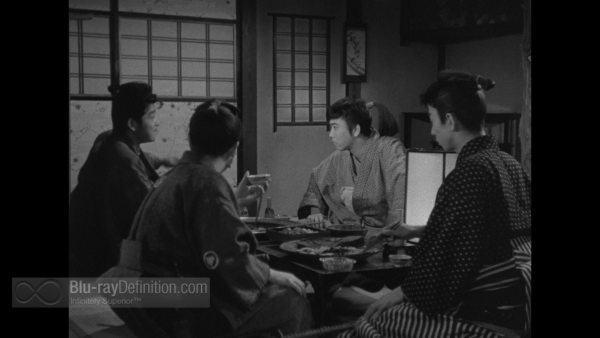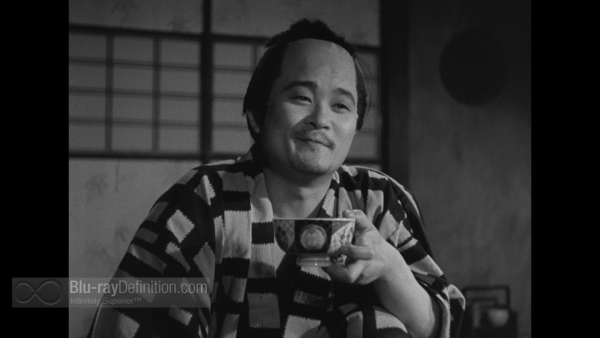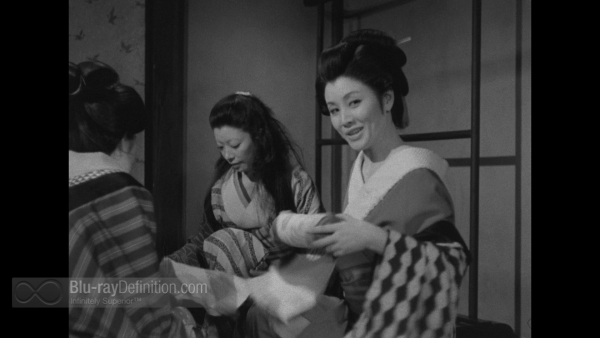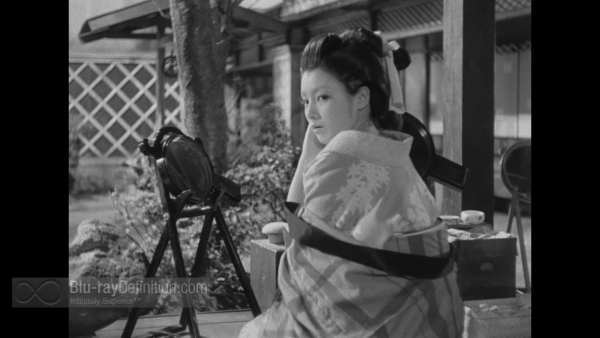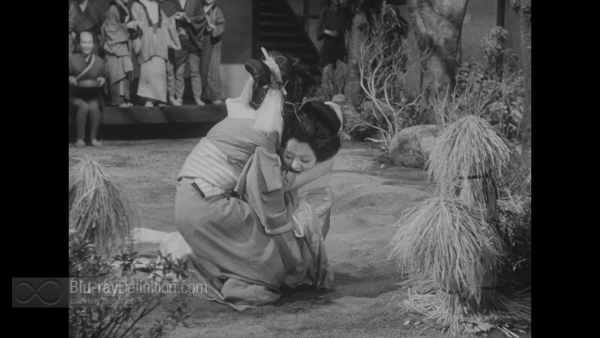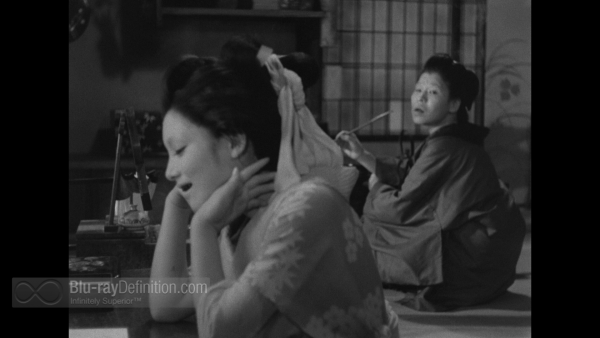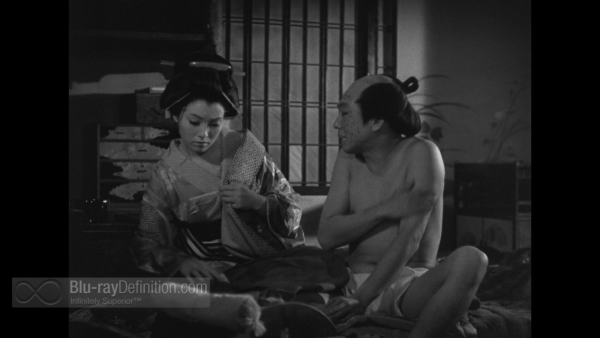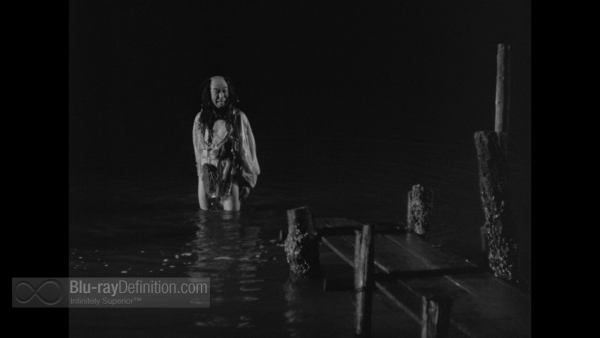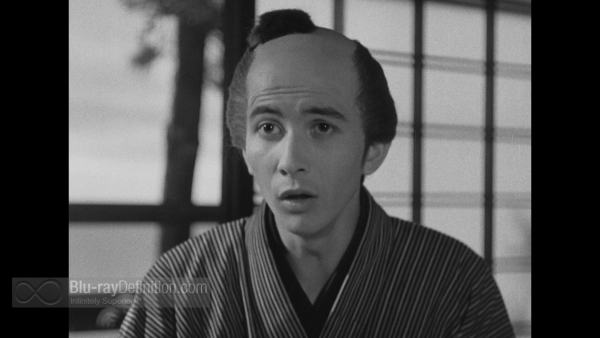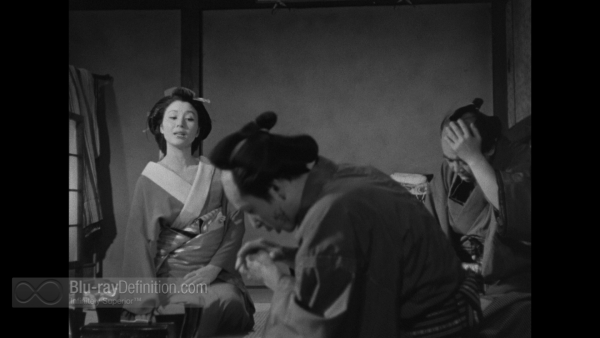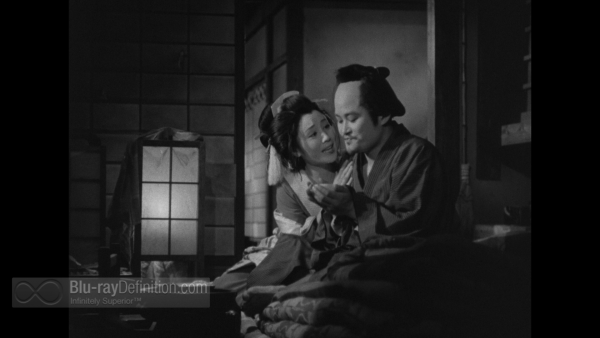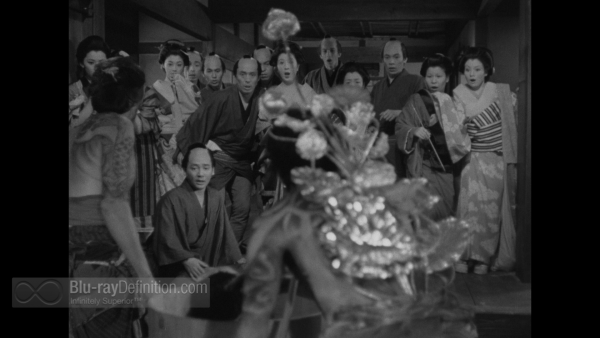- Aspect Ratio: 1.37:1
- Video Codec: AVC/MPEG-4
- Resolution: 1080p/24 (23.976Hz)
- Audio Codec: Japanese LPCM 2.0 Mono (48kHz/16-bit)
- Subtitles: English
- Subtitles Color: White
- Region: B (Region-Locked)
- Certificate: 12
- Discs: 1 (1 x Blu-ray)
- Digital Copies: N/A
- Run Time: 110 Mins.
- Studio: Eureka Entertainment (Masters of Cinema)
- Blu-ray Release Date: April 22, 2013
- List Price: £20.42
–
Overall
[Rating:4/5]
The Film
[Rating:4.5/5]
Video Quality
[Rating:4/5]
Audio Quality
[Rating:3.5/5]
Supplemental Materials
[Rating:2/5]
Click thumbnails for high-resolution 1920X1080p screen captures
(The below TheaterByte screen captures are taken directly from the Blu-ray Discs and losslessly compressed in the PNG format. There should be no loss of picture quality with this format. All screen captures should be regarded only as an approximation of the full capabilities of the Blu-ray format.
–
The Film
[Rating:4.5/5]
Bakumatsu taiyō-den (A Sun-Tribe Myth from the Bakumatsu Era; 幕末太陽傳) was voted one of the top five films ever made by influential Japanese publication Kinema Junpō. From all outward appearances, director Kawashima Yûzô’s film is a simple farce, but in fact it is much more than that. A parody of the taiyô-zoku (‘Sun-Tribe’) films, and their depictions of rebellious youth, popular during post-war 1950s Japan, the film flips the genre around. The social mores were changing and there was increasing pressure against studios to halt production on these films that many felt were badly influencing Japanese youth. A tide was growing against Western influences and to ban prostitution. The latter was particularly linked to anti-Western sentiments given the Japanese government’s policy of procuring “comfort girls” for U.S. military during wartime.
So Kawashima transplanted these issues into Japan’s Bakumatsu era of the late 19th century, the end of the shogunate, and covered up its biting social commentary with outlandish physical humor and a comedy of errors. The story follows Saheiji (comedian Frankie Sakai) who tarries at a brothel where he finds himself unable to pay for the bill he has run up. He is forced, therefore, to stay and do various chores to work off his debt. He finds himself mixed up in various unlikely situations, ranging from the infighting of the geisha, who bicker over clients as they maneuver to pay off their own burdensome debts brought on by the elaborate attire they must wear, to a group of bumbling samurai plotting to set ablaze the British quarter and oust the foreigners they feel are responsible for the downfall of Japanese society.
Kawashima’s film, written by himself, Imamura Shôhei, and Tanaka Keiichi, has an effortless air, and it stands as a model of how socio-political issues tend to stay the same, no matter how much humanity tries to change. It his helped along by wonderfully comic performances by Sakai and the rest of the cast, especially all of the actresses who play the geisha. They are fantastically manipulative, seductive, and conniving, while also being sympathetic. An example of this comes early on, during the film’s first act, when the geisha Osome (Hidari Sachiko), distraught over her debts tries to convince a poor, pimple-faced patron to commit a “love suicide” with her so she won’t die alone in shame. After numerous false starts, they decide on drowning, but she pushes him into the shallow river alone and leaves after she hears of a possible, richer patron that could be the answer to her prayers. It’s one of the funniest sequences and indicative of Kawashima’s sly sense of humour and social commentary.
Video Quality
[Rating:4/5]
This is a fine enough presentation of this black and white 35mm source, digitally restored and encoded on Blu-ray in AVC/MPEG-4 1080p. There is some film softness, but the image hasn’t been artificially sharpened, and textures look natural. The image is clean with only a little bit of source damage popping up from time to time. Grain looks organic, not noisy, and contrast is good.
Audio Quality
[Rating:3.5/5]
The original Japanese-language monaural soundtrack is provided in LPCM 2.0 (48kHz/16-bit). While it sufficiently captures the sound for the production from this era, it is rather boxy and often shrill with audible crackle during louder passages.
Supplemental Materials
[Rating:2/5]
There are no on-disc supplements for this release, which is a letdown for a Masters of Cinema series offering. The booklet does include a quite interesting read from Frederick Veith, critic and scholar of Japanese film, on the film itself, its historical relation to post-war Japanese youth culture and the rise of anti-prostitution sentiments in Japan. There is also a 1969 essay from the great Imamura Shohei, who worked on Bakumatsu taiyō-den in various capacities.
The Definitive Word
Overall:
[Rating:4/5]
Eureka once again dig into the catalogue of classic world cinema pieces and bring out this audacious Japanese comedy from director Kawashima Yûzô. Bakumatsu taiyō-den is hilarious and looks rather good in this current (2011) restoration.
Additional Screen Captures
[amazon-product region=”uk” tracking_id=”bluraydefinit-21″]B00AMF86SG[/amazon-product]
Shop for more Blu-ray titles at Amazon.co.uk
–
[amazon-product region=”uk” tracking_id=”bluraydefinit-21″]B00AMF86SG[/amazon-product]
Shop for more Blu-ray titles at Amazon.co.uk
Overall
[Rating:4/5]
The Film
[Rating:4.5/5]
Video Quality
[Rating:4/5]
Audio Quality
[Rating:3.5/5]
Supplemental Materials
[Rating:2/5]
–


